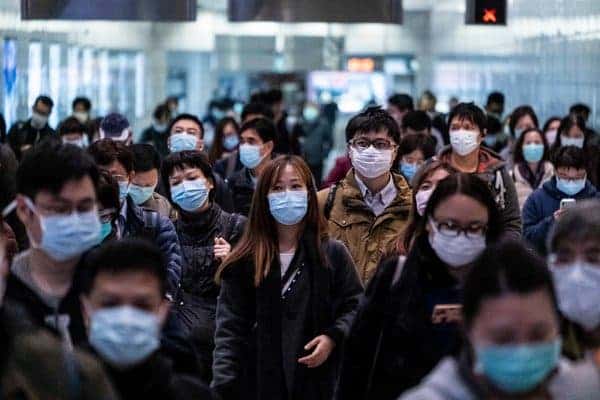The disease outbreak appears to have ebbed in China. WHO verified figures showing that since February 26, more new cases are being identified outside of China than in the country where COVID-19 originated in December 2019.
The WHO’s Director-General said outside of China, 1848 cases have been reported in 48 countries, with 80% of those cases recorded in just three countries: South Korea, Iran, and Italy. Another 12 countries recorded their first cases.
The number of cases in Iran, the epicenter of the outbreak in the Middle East, has surged, with 2336 cases and 77 deaths as of Wednesday. The response from Iran, whose health system was already strained by US sanctions, has been strongly criticized by local health workers and international observers.
Ministers and high-ranking officials have contracted the virus, with the head of the country’s emergency medical services, Pirhossein Kolivand among the latest to be diagnosed.
On Monday, the WHO deployed a plane, full of technical experts and supplies to assist Iran’s response to the epidemic. The mission is providing guidance on strengthening and scaling up the response to the ongoing outbreak and delivered personal protective equipment for 15 000 health workers, and laboratory kits to diagnose up to 100, 000 people.
The number of cases in Italy is also on the rise. The European country has now recorded 80 deaths, the most outside of China. South Korea has introduced drive-through testing to combat the spread of the virus. The Asian country has 5328 confirmed cases of novel coronavirus and 32 deaths have been recorded to date.
The World Health Organization’s Director-General Tedros Adhanom Ghebreyesus said on Tuesday the organization has major concerns about the availability, supply, and cost of health equipment such as face masks, gloves, and respirators.
The Director-General said, “We are concerned that countries’ abilities to respond are being compromised by the severe and increasing disruption to the global supply of personal protective equipment – caused by rising demand, hoarding, and misuse.”
“We can’t stop COVID-19 without protecting our health workers,” said Ghebreyesus.
COVID-19 is not influenza
The Director-General also reiterated that COVID-19 is not seasonal influenza, and despite sharing some similarities, it should not be tested or treated in the same way.
COVID-19 is much more severe. At the time of writing 3.4% of those who contracted the virus have died, compared to less than 1% of people infected with seasonal flu. COVID-19 is a new strain of the virus, meaning no one has immunity, and more people are susceptible to infection.
The only accurate surveillance system for novel coronavirus is testing for antibodies in large numbers of people. Unlike the flu, there is no vaccine or therapeutic treatment for COVID-19 yet, although vaccines and treatments are rapidly being developed.
Containment is still possible for COVID-19 and will save lives, the WHO advises. Based on current data, the disease does not spread as efficiently as influenza, and implementation of measures such as quarantine and good hand hygiene could be the difference between a “handful of cases and a larger cluster” in countries recording their first cases.
The Novel coronavirus was first reported in the Chinese city of Wuhan, in Hubei Province on December 31, 2019.
The WHO states, “COVID-19 is the infectious disease caused by the most recently discovered coronavirus.”
Symptoms include fever, tiredness, and dry cough. Older people and those with underlying medical problems are most likely to develop serious illness.
Protection measures recommended by the WHO include practicing good hand and respiratory hygiene, maintaining a distance between yourself and people who are coughing or sneezing, and avoiding touching your nose, eyes, and mouth.
People are also advised to stay home if they feel unwell and seek medical attention if they have a fever, cough, or experience difficulty breathing.

